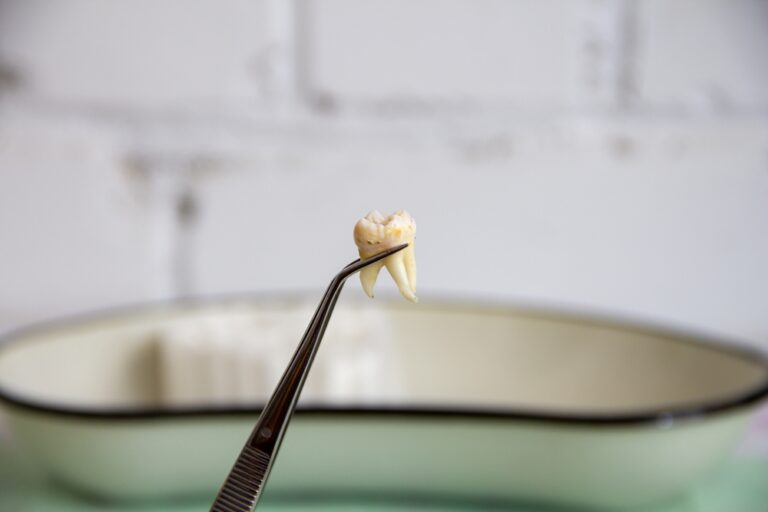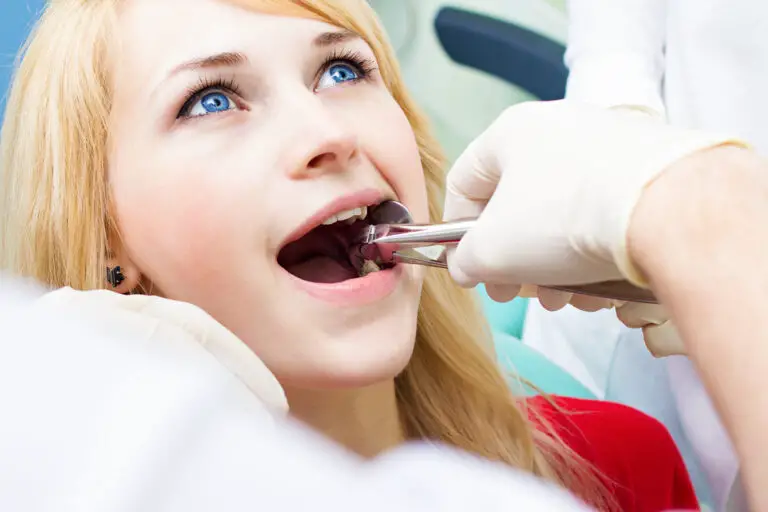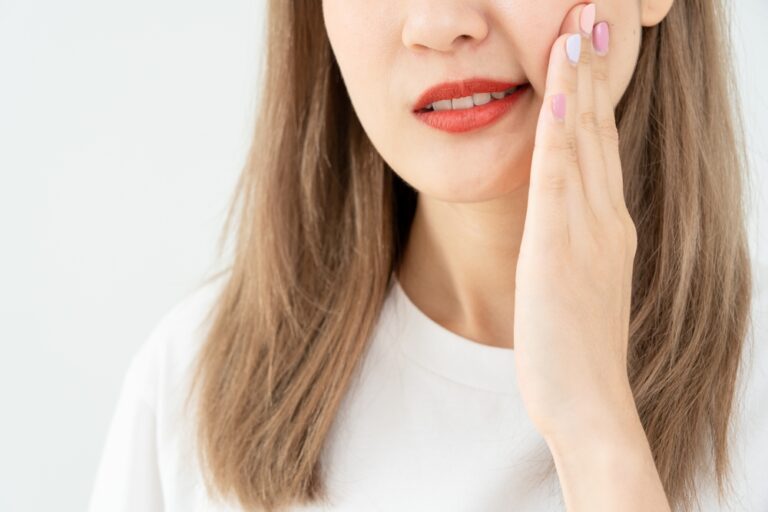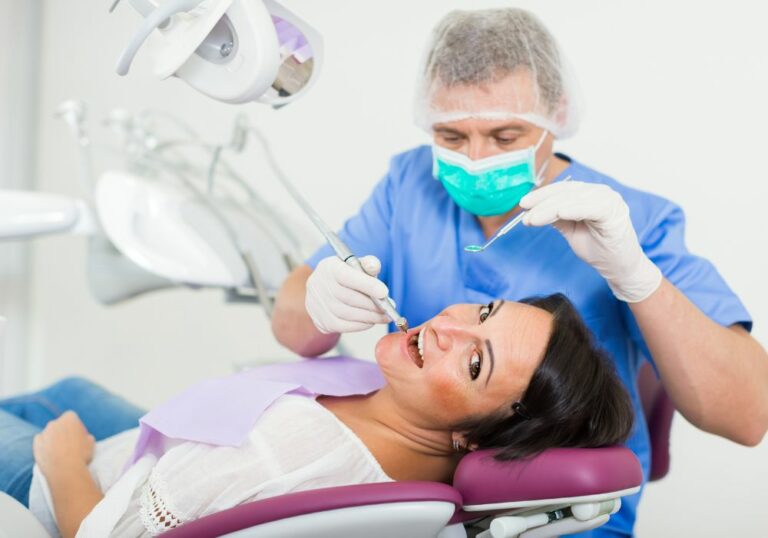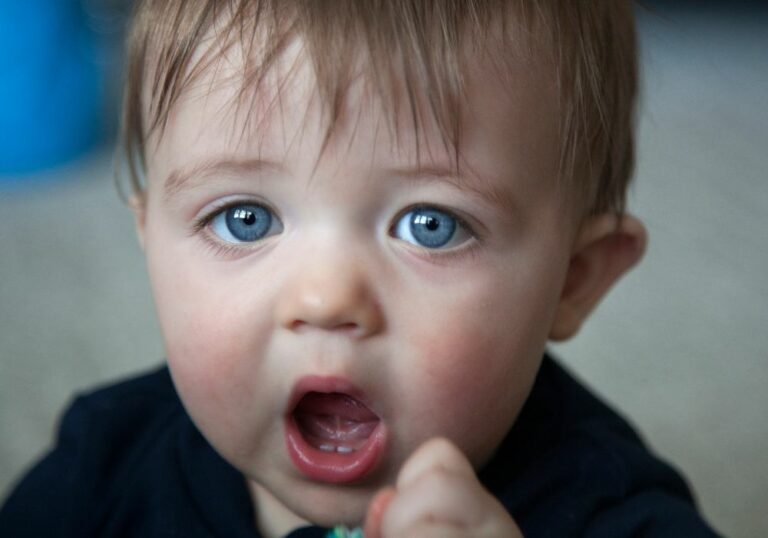When it comes to your baby’s oral health, it’s important to start early. Even before their first tooth appears, it’s recommended that you begin cleaning their gums to prevent bacteria growth and promote good oral hygiene. But when exactly should you start cleaning your baby’s gums?
According to pediatric dentists, you can start cleaning your baby’s gums as a newborn. Simply use a clean, damp washcloth or a soft rubber or silicone finger brush to gently wipe their gums after feedings. This helps remove any milk residue and bacteria that may have accumulated in their mouth.
As your baby grows and their teeth begin to appear, it’s important to continue developing good oral hygiene habits. This includes brushing their teeth twice a day with a soft-bristled toothbrush and fluoride toothpaste. By starting early and making oral hygiene a priority, you can help ensure that your baby has a healthy smile for years to come.
Understanding Baby Oral Health
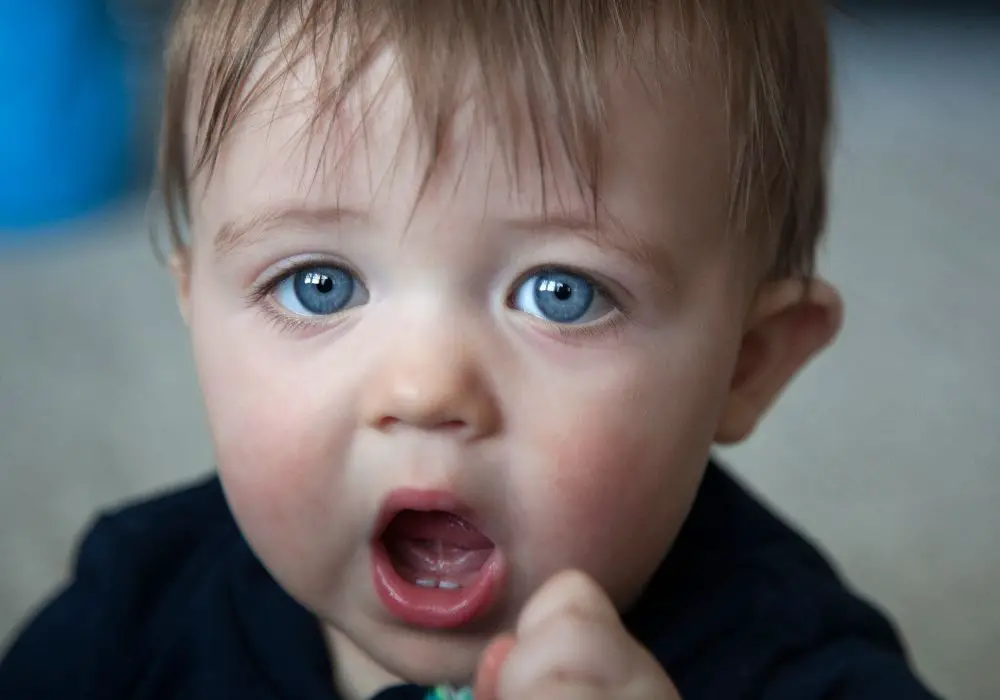
As a new parent, you may be wondering when you should start cleaning your baby’s gums. The answer is simple: as soon as possible. It’s important to establish good oral hygiene habits early on to ensure your baby’s teeth and gums stay healthy.
Even before your baby’s first teeth emerge, it’s essential to keep their mouth clean. Bacteria can still accumulate on their gums, which can lead to tooth decay and other oral health issues. Here are some tips to help you keep your baby’s mouth healthy:
- Use a clean, damp washcloth to gently wipe your baby’s gums after each feeding.
- Once your baby’s first tooth emerges, start brushing their teeth twice a day with a soft-bristled toothbrush and a small amount of fluoride toothpaste.
- Schedule your baby’s first dental appointment by their first birthday.
It’s also important to pay attention to your baby’s diet. Sugary foods and drinks can contribute to tooth decay, so limit your baby’s intake of these items. Instead, offer them healthy foods like fruits, vegetables, and whole grains.
By establishing good oral hygiene habits early on, you can help ensure your baby has a healthy smile for years to come.
Why Cleaning Baby’s Gums is Important
As a new parent, you may be wondering when you should start cleaning your baby’s mouth. Even before your baby’s first tooth appears, it’s important to start cleaning their gums. Here are some reasons why cleaning your baby’s gums is important:
Preventing Bacteria Buildup
Cleaning your baby’s gums helps to prevent the buildup of bacteria in their mouth. Bacteria can cause infections and other oral health problems, so it’s important to keep your baby’s mouth clean.
Promoting Healthy Teeth and Gums
Cleaning your baby’s gums can help to promote healthy teeth and gums. By removing bacteria and other debris from their mouth, you can help to prevent gum disease and other oral health problems.
Establishing Good Oral Hygiene Habits
By starting to clean your baby’s mouth early, you can help to establish good oral hygiene habits that will last a lifetime. As your baby grows and starts to develop teeth, they will be more likely to take care of their teeth if they are used to having their mouth cleaned regularly.
When it comes to cleaning your baby’s gums, you don’t need any special tools or products. Simply use a clean, damp cloth or gauze to wipe their gums after feedings. This will help to remove any milk or formula residue from their mouth and keep their gums clean.
The Right Time to Start Cleaning Baby’s Gums
As a new parent, you may be wondering when you should start cleaning your baby’s gums. It’s important to start taking care of your baby’s oral health early on to prevent tooth decay and other dental problems.
According to experts, you can start cleaning your baby’s gums even before their teeth appear. You can use a clean, damp washcloth or gauze pad to gently wipe their gums after feedings. This can help remove any milk residue or bacteria that may be present in their mouth.
Once your baby’s teeth start to appear, it’s important to start brushing them with a bit of fluoride toothpaste. This can help protect their teeth from decay and other dental problems. You can use a soft-bristled toothbrush that is specifically designed for babies.
It’s recommended that you brush your baby’s teeth twice a day, once in the morning and once before bedtime. Be sure to use a small amount of toothpaste, no larger than a grain of rice, and brush gently in circular motions.
In addition to brushing, you can also encourage good oral health habits by limiting sugary drinks and snacks, and making sure your baby gets enough fluoride. You can talk to your pediatrician or dentist about fluoride supplements or treatments if necessary.
By starting early and establishing good oral health habits, you can help ensure that your baby’s teeth and gums stay healthy and strong.
How to Clean Baby’s Gums
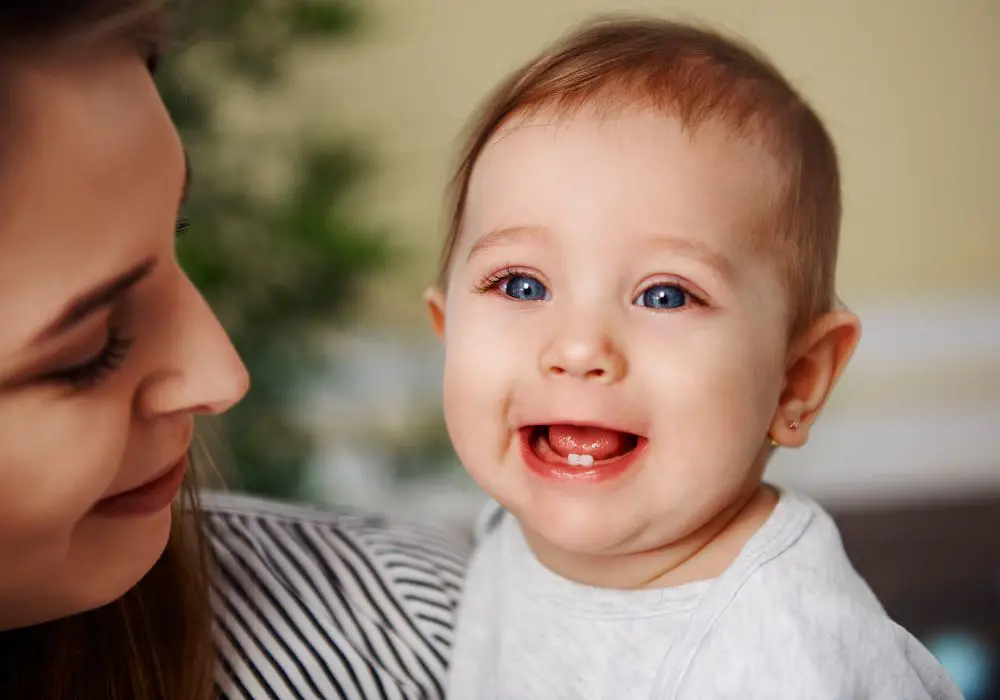
Cleaning your baby’s gums is an important part of their oral hygiene routine. Here are the materials you need and the step-by-step procedure to follow:
Materials Needed
To clean your baby’s gums, you will need the following materials:
- Clean, damp washcloth
- Gauze pad
- Finger brush
- Soft-bristle, infant-sized toothbrush
- A small amount of toothpaste (approved by a dentist)
Step-by-Step Procedure
Follow these steps to clean your baby’s gums:
- Starting at birth, use a clean, damp washcloth, a gauze pad or a finger brush to gently wipe clean the gums and the front of the tongue after meals and at bedtime — after the last bottle or nursing session.
- As soon as your baby’s first tooth pokes through, you may use a soft-bristle, infant-sized toothbrush that has been approved by a dentist to gently brush the baby’s teeth with a very small amount of toothpaste.
- Brush gently on the inside and outside, including along the gumline and chewing side of each of your baby’s teeth, as well as their tongue (if they’ll let you), to dislodge bacteria. It may help to pull their cheeks away from their teeth a bit so you can see their teeth and gums better.
- Don’t worry about rinsing. Your baby will swallow any excess toothpaste.
- Cleaning the baby’s tongue can be a challenge because they seldom cooperate. You may try distracting the baby with interesting activities and toys to be able to clean their tongue.
Remember to clean your baby’s gums and teeth twice per day to develop good oral hygiene habits. Paying attention to mouth care from an early age can make all the difference in a person’s oral health.
Common Challenges and Solutions
Cleaning your baby’s gums can be a challenge, but it is an essential part of their oral care routine. Here are some common challenges you may face and some solutions to help you overcome them:
Challenge: Your baby doesn’t like having their gums cleaned.
Solution: Try to make the experience as enjoyable as possible. Sing a song or play a game while you clean their gums. You can also try using a soft, silicone finger brush or a damp washcloth to clean their gums instead of a toothbrush.
Challenge: Your baby is teething, and their gums are sore and tender.
Solution: Be gentle when cleaning their gums. Use a soft toothbrush or a damp washcloth to clean their gums. You can also offer them something cold, like a frozen washcloth or a teething ring, to help soothe their sore gums.
Challenge: Your baby is resistant to having their gums cleaned.
Solution: Be patient and persistent. Try to make it a part of their daily routine, so they get used to it. You can also try to make it a fun activity by singing a song or playing a game while you clean their gums.
Challenge: You’re not sure how to clean your baby’s gums properly.
Solution: Use a soft toothbrush or a damp washcloth to gently clean your baby’s gums. Brush gently on the inside and outside, including along the gumline and chewing side of each of your baby’s teeth, as well as their tongue (if they’ll let you), to dislodge bacteria. You don’t need to use toothpaste to clean your baby’s gums.
By overcoming these common challenges, you can help ensure that your baby’s gums stay healthy and clean. Remember, cleaning your baby’s gums is an essential part of their oral care routine, and it’s never too early to start.
Tips for Making the Process Easier
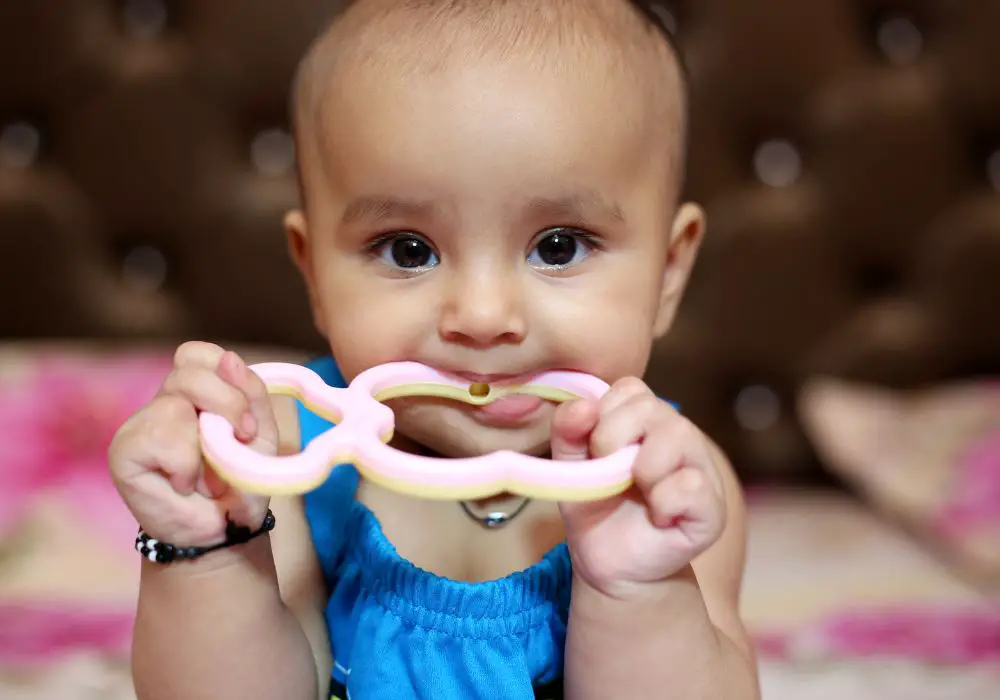
Cleaning your baby’s gums can be a daunting task, but it’s an essential part of their oral care routine. Here are some tips to make the process easier for both you and your baby:
- Start early: As soon as your baby’s first tooth appears, you should start brushing their teeth twice a day. But even before that, you can clean their gums with a soft, damp cloth or gauze pad to remove any bacteria or food particles.
- Make it a routine: Incorporate teeth cleaning into your daily routine, such as after meals or before bedtime. This will help your baby get used to the process and make it easier for you to remember.
- Use the right tools: Choose a soft-bristled toothbrush specifically designed for babies. You can also use a finger brush or silicone brush that fits over your finger. Avoid using adult toothpaste, as it may contain too much fluoride for your baby. Instead, use a fluoride-free toothpaste specifically made for infants.
- Make it fun: Sing a song or play a game while brushing your baby’s teeth to make it a more enjoyable experience. You can also let them hold the toothbrush or choose their own toothbrush with their favorite character on it.
- Be gentle: Use a gentle touch when brushing your baby’s teeth and gums. Don’t apply too much pressure, as this can cause discomfort or even damage their delicate gums.
By following these tips, you can make the process of cleaning your baby’s gums and teeth a positive and stress-free experience for both you and your little one.
Precautions to Take
When it comes to cleaning your baby’s gums, there are a few precautions you should take to ensure their safety and comfort. Here are some things to keep in mind:
Use the Right Tools
When cleaning your baby’s gums, it’s important to use the right tools. A soft, damp washcloth or gauze pad is a good choice for wiping your baby’s gums. Avoid using a toothbrush until your baby’s first tooth comes in. When you do start using a toothbrush, choose one with soft bristles and a small head that is designed for infants.
Be Gentle
Cleaning your baby’s gums should be a gentle process. Use a light touch when wiping their gums with a washcloth or gauze pad. When you start using a toothbrush, be sure to brush gently and avoid scrubbing their teeth and gums too hard.
Avoid Harmful Substances
Be careful about what you put in your baby’s mouth. Avoid using toothpaste until your baby is old enough to spit it out. Until then, simply use water to clean their teeth and gums. Also, avoid giving your baby sugary drinks or foods, as these can lead to tooth decay.
Watch for Signs of Discomfort
Pay attention to your baby’s reactions when you clean their gums or brush their teeth. If they seem uncomfortable or upset, take a break and try again later. You may also want to talk to your pediatrician or dentist if your baby is experiencing persistent discomfort during oral care.
By taking these precautions, you can help keep your baby’s gums and teeth healthy and comfortable.
When to Consult a Pediatric Dentist
It is important to establish a dental home for your baby by the age of one. A pediatric dentist can provide specialized care for your child’s dental needs and ensure that their teeth and gums are healthy. Here are some situations in which you should consult a pediatric dentist:
- Delayed tooth eruption: If your baby has not started teething by the age of 18 months, you should consult a pediatric dentist. Delayed tooth eruption can be a sign of underlying health issues that need to be addressed.
- Tooth decay: If you notice any signs of tooth decay in your baby’s teeth, such as brown spots or cavities, you should consult a pediatric dentist. Early intervention can prevent further damage to your child’s teeth.
- Bleeding gums: If your baby’s gums bleed when you brush their teeth, it could be a sign of gum disease. A pediatric dentist can assess the severity of the condition and recommend appropriate treatment.
- Thumb sucking: If your baby sucks their thumb or uses a pacifier for an extended period of time, it can affect the development of their teeth and jaw. A pediatric dentist can provide guidance on how to break the habit and prevent any long-term dental issues.
- Injury to the mouth: If your baby falls and injures their mouth, you should consult a pediatric dentist immediately. They can assess the extent of the injury and provide appropriate treatment.
Remember, prevention is key when it comes to your baby’s dental health. Regular check-ups with a pediatric dentist can help identify any issues early on and prevent more serious problems down the line.
Frequently Asked Questions
When to start oral care for baby
It is recommended to start oral care for your baby as soon as possible. You can begin by wiping your baby’s gums with a clean, damp washcloth or gauze pad after each feeding. Once your baby’s first tooth appears, you can start using a finger brush or soft-bristled toothbrush with water to clean their teeth and gums.
How to use finger brush for babies
A finger brush is a small, soft-bristled brush that fits over your finger. To use a finger brush for your baby, simply wet the brush and gently rub it over their teeth and gums in circular motions. Be sure to clean all surfaces of their teeth, including the front, back, and chewing surfaces.
How to brush 1 year old teeth
When your baby turns one year old, you can start using a small amount of fluoride toothpaste on their toothbrush. Use a pea-sized amount of toothpaste and brush their teeth in circular motions, making sure to clean all surfaces of their teeth. You should brush your baby’s teeth twice a day, once in the morning and once before bed.
Cleaning newborn mouth NHS
The NHS recommends cleaning your newborn’s mouth by wiping their gums with a clean, damp cloth or gauze pad after each feeding. This helps to remove bacteria and prevent the buildup of plaque.
Do you brush baby teeth with toothpaste
Yes, you can brush your baby’s teeth with toothpaste once they have their first tooth. Use a small amount of fluoride toothpaste and a soft-bristled toothbrush to clean their teeth twice a day.
What happens if I don’t clean my baby’s gums?
If you don’t clean your baby’s gums, bacteria can build up and cause tooth decay. This can lead to cavities and other dental problems. It is important to start oral care for your baby as soon as possible to prevent these issues.


